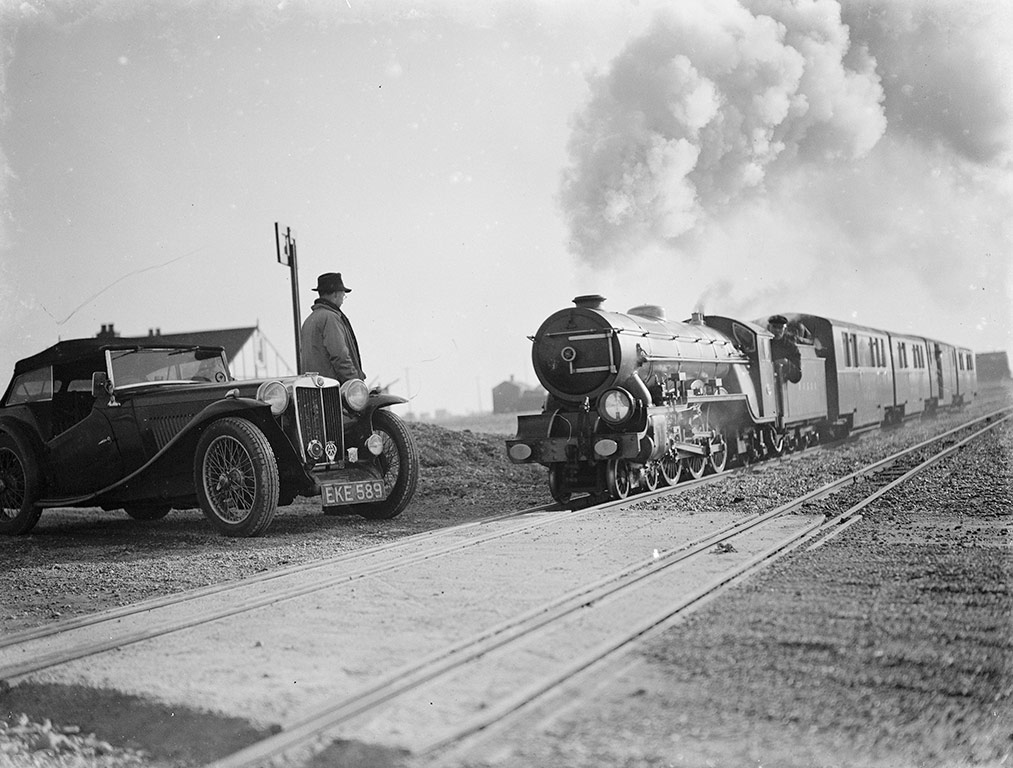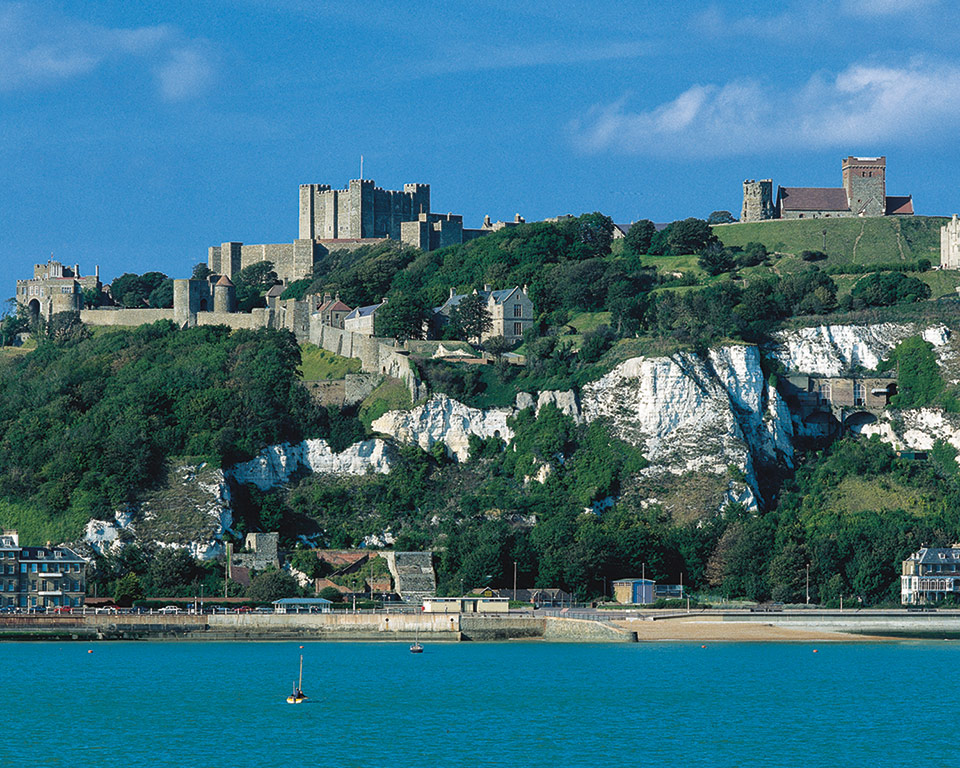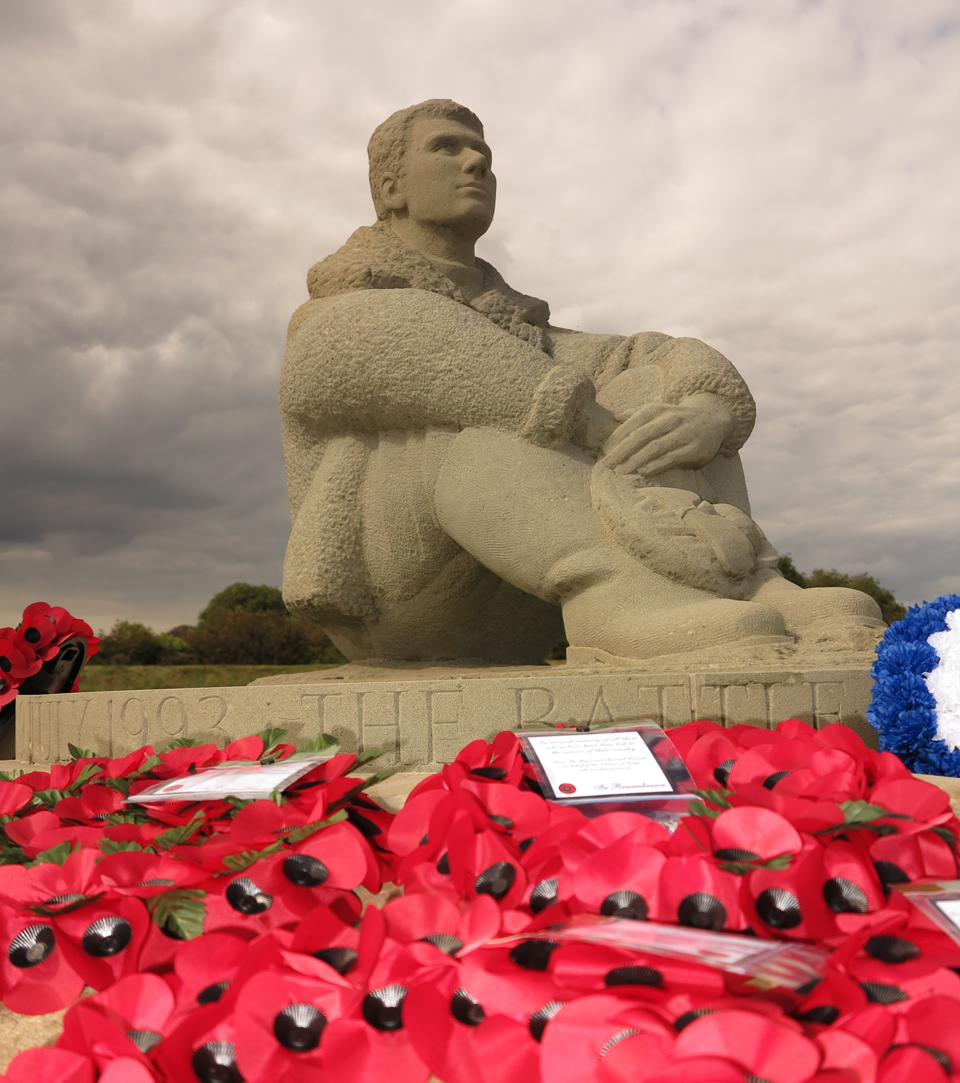Guarding the shortest sea crossing to Europe, Kent has been on the frontline of England’s defence for centuries, and this role came to the fore in World War II. The county played a crucial part in pivotal episodes of World War Two (1939–1945): Dover, ‘Lock and Key of England’, was one of the most important military centres in Britain and tells a thrilling story of its crucial importance during WW2, along with The Battle of Britain (1940) that raged over Kent skies, the epic evacuation of Dunkirk (1940) and covert operations to make the D-Day landings (1944) for the long-awaited invasion of Europe a success.
Tour for ten whole days on our exciting itinerary, or choose days that suit your own time frame. You will find a compelling mix of daring missions and surprises (what was Dumbo doing on Romney Marsh?), tales of ingenuity and heroic human spirit.
Military & Maritime Medway
Morning: Embark on a compelling adventure around The Historic Dockyard Chatham. Find out how the dockyard bustled with the building of vessels and engineering repairs in WW2, and clamber aboard HMS Cavalier, the Royal Navy’s last operational Second World War destroyer.
Afternoon: Uncover more military exploits at the Royal Engineers Museum, Gillingham. Explore a collection of over a million objects from the war alongside bridging and bomb disposal activities of the Corps in WW2. Head to the Port Amherst, Chatham for fascinating insights into WW2 defences. Finish off at the riverside Upnor Castle – a rare example of Elizabethan artery fort.
Day 2Proud to Serve
Morning: Immerse yourself in the story of a famous local regiment at the Queen’s Own Royal West Kent Regiment Museum, housed within Maidstone Museum.
Afternoon: Drop in to Shepherd Neame Brewery in the market town of Faversham, where Britain’s oldest brewer features ‘Spitfire’ among its award-winning tipples. Step back in time at Kent Life and explore the Petroleum Warfare Department for an insight into weapons during WW2, which were directed from Leeds Castle. There were also some experiments to perfect FIDO (Fog Investigation Dispersal Operations) at Leeds, and later on the historic castle was used as a military hospital.
Day 3By Sea and Air
Morning: Dive into maritime history at Whitstable Museum and Gallery and browse intriguing memorabilia from WW2. Then visit Seaside Museum in Herne Bay to see a Barnes Wallis Bouncing Bomb prototype from WW2.
Afternoon: Explore the Spitfire and Hurricane Memorial Museum, Manston, and learn about Kent’s major role in wartime flying. Admire one of the few surviving Spitfires with a wartime record, as well as an impressive Hawker Hurricane. Join a RIB Request Boat Trip* that takes in WW2 gun forts and visit the Ramsgate Tunnels to experience how people sheltered and lived in WW2.
*Opening times vary depending on weather conditions. Please check before visiting.
Day 4City and Castles
Morning: Head straight for the Blitz gallery in Canterbury Heritage Museum to see incredible pictures of the devastation caused by fire bombs and explosives during WW2. Wander along the precincts of Canterbury Cathedral and marvel at the sublime architecture and treasures that could so easily have been lost after the WW2 bombings.
Afternoon: Enjoy lunch at The Royal Hotel in Deal, which Sir Winston Churchill visited on 15 august 1951. Pay a visit to Deal and Walmer Castles, which saw a mass evacuation of civilians and troops in 1940. Round off the day with the Frontline Britain Trail on St Margarets-at-Cliff.
Day 5Fortress Dover
Morning: Start off at Dover – a town that became a prime objective of Hitler’s invasion plans and a fulcrum of military activity. Head straight to Dover Castle and immerse yourself in the drama of 1940’s Dunkirk evacuation, in the very tunnels where operation ‘Dynamo’ was masterminded.
Afternoon: Visit Dover Museum to see fascinating wartime displays on view and a presentation on the evacuation of Dunkirk. Stroll around the Western Heights and the network of footpaths to 18th/19th century fortifications. Finish off with a tour of the WW2 tunnels underneath the iconic White Cliffs of Dover.
Day 6The Battle of Britain
Morning: Begin the day at The National Memorial to The Few at Capel-le-Ferne, high in the White Cliffs and a truly moving tribute to Churchill’s ‘Few’ who fought to keep the country free of invasion. Visit The Women’s Land Army Museum at Little Farthingloe Farm, featuring personal letters, uniforms and information demonstrating the efforts of women serving the country.
Afternoon: Fire your imagination further at Kent Battle of Britain Museum, Hawkinge, home to the most important Battle of Britain artefacts in the country. Visit Folkestone and see the very places where many inhabitants were evacuated during WW2.
Day 7PLUTO, Dumbo and Romney Marsh
Morning: Hop on the Romney, Hythe and Dymchurch Railway, which in WW2 was used during the building of PLUTO, The Pipe-Line Under the Ocean. Browse RHDR’s 1940s Museum at New Romney for the story of the railway’s wartime exploits.
Afternoon: Explore Dymchurch Martello Tower and see why it was used in WW2 following the evacuation of Dunkirk and keep your eyes peeled for remnants of Dumbo – where the pipeline crossed the drainage ditches it ran above ground. Finish off at the Brenzett Aeronautical Museum – packed with wartime equipment, remains discovered from air crash sites and other memorabilia.
Day 8Homes of Heroes & Heroes of the Home Front
Morning: Set course straight for Penshurst Place & Gardens, near Tonbridge, and hear the stories of the Sydney family throughout both World Wars. Discover how their family home suffered and was restored to splendour after the wars.
Afternoon: Visit the other historic properties affected by WW2: Tonbridge Castle grew anti-tank pill boxes at each end of the south curtain wall and Chiddingstone Castle became a billet for Canadian forces who left graffiti behind in the flag tower (tower not open to the public). Chartwell, near Westerham, opens the door on the personal life of Sir Winston Churchill.
Day 9A Final Salute
Morning: Shoreham Aircraft Museum, Sevenoaks, together the stories behind hundreds of aviation relics excavated from crashed WW2 British and German aircraft, alongside other fascinating artefacts.
Afternoon: Full-scale replicas of a Hurricane and Spitfire welcome you to Saint George’s Royal Air Force Chapel of Remembrance, Biggin Hill. Check for open days and tours at the new Biggin Hill Heritage Hangar based at the famous WW2 RAF aerodrome. Explore the remaining traces of WW2 at the Hart Dyke family’s Lullingstone Castle and The World Garden, Eynsford, and find out just why the castle was taken over by the British Army during WW2.



